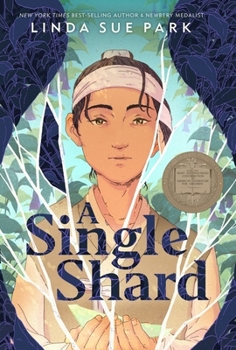A Single Shard: A Newbery Award Winner
Select Format
Select Condition 
Book Overview
The Newbery Medal-winning tale of an orphan boy whose dream of becoming a master potter leads to unforeseen adventure in ancient Korea.
Tree-ear is an orphan boy in a 12th-century Korean village renowned for its ceramics. When he accidentally breaks a delicate piece of pottery, he volunteers to work to pay for the damage. Putting aside his own dreams, Tree-ear resolves to serve the master potter by embarking on a difficult and dangerous journey, little knowing that it will change his life forever.
"Despite the odds against him, Tree-ear becomes courageous, brave and selfless, a hero as enduring as the porcelain Park so lovingly describes." (New York Times)
"Intrigues, danger, and a strong focus on doing what is right turn a simple story into a compelling read. A timeless jewel." (Kirkus starred review)
*A broken piece of pottery sets events in motion as an orphan struggles to pay off his debt to a master potter. This finely crafted novel brings 12th-century Korea and these indelible characters to life." (School Library Journal starred review)
"Tree-ear's determination and bravery in pursuing his dream of becoming a potter takes readers on a literary journey that demonstrates how courage, honor and perseverance can overcome great odds and bring great happiness. Park effectively conveys 12th century Korea in this masterful piece of historical fiction." (Kathleen Odean, chair of the Newbery Award Selection Committee)






